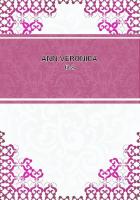It seems that Queen Mary of England was something of a coquette in Holland. Comte d'Avaux, the French Ambassador, told me himself that he had had a secret interview with her at the apartments of one of the Queen's Maids of Honour, Madame Treslane. The Prince of Orange, becoming acquainted with the affair, dismissed the young lady, but invented some other pretext that the real cause might not be known.
Three footmen had a quarrel together; two of them refused to admit the third to their table, saying, "as he and his master only serve a president's wife, he cannot presume to compare himself with us, who serve Princesses and Duchesses." The rejected footman called another fellow to his aid, and a violent squabble ensued. The commissaire was called: he found that they served three brothers, the sons of a rich merchant at Rouen; two of them had bought companies in the French Guards; one of the two had an intrigue with the wife of Duc d'Abret, and the other with the Duchesse de Luxembourg, while the third was only engaged with the wife of a president. The two former were called Colande and Maigremont; and, as at the same time the Duc d'Abret, the son of the Duc de Bouillon, was in love with the lady of the President Savari.
The Envoy from Holstein, M. Dumont, was very much attached to Madame de La Rochefoucauld, one of Madame de Berri's 'dames du palais'. She was very pretty, but gifted with no other than personal charms. Some one was joking her on this subject, and insinuated that she had treated her lover very favourably. "Oh! no," she replied, "that is impossible, I assure you, entirely impossible." When she was urged to say what constituted the impossibility, she replied, "If I tell, you will immediately agree with me that it is quite impossible." Being pressed still further, she said, with a very serious air, "Because he is a Protestant!"
When the marriage of Monsieur was declared, he said to Saint-Remi, "Did you know that I was married to the Princesse de Lorraine?"--
"No, Monsieur," replied the latter; "I knew very well that you lived with her, but I did not think you would have married her."
Queen Marie de Medicis, the wife of Henri IV., was one day walking at the Tuileries with her son, the Dauphin, when the King's mistress came into the garden, having also her son with her. The mistress said very, insolently, to the Queen, "There are our two Dauphins walking together, but mine is a fairer one than yours" The Queen gave her a smart box on the ear, and said at the same time, "Let this impertinent woman be taken away." The mistress ran instantly to Henri IV. to complain, but the King, having heard her story, said, "This is your own fault; why did you not speak to the Queen with the respect which you owe to her?"
Madame de Fiennes, who in her youth had been about the Queen-mother, used always to say to the late Monsieur, "The Queen, your mother, was a very silly woman; rest her soul!" My aunt, the Abbess of Maubuisson, told me that she saw at the Queen's a man who was called "the repairer of the Queen's face;" that Princess, as well as all the ladies of the Court, wore great quantities of paint.
On account of the great services which the House of Arpajon in France had rendered to the Order of Malta, a privilege was formerly granted that the second son of that family, should at his birth become a Knight of the Order without the necessity of any proof or any inquiry as to his mother.
The Czar Peter I. is not mad; he has sense enough, and if he had not unfortunately been so brutally educated he would have made a good prince.
The way in which he behaved to his Czarowitz (Alexis) is horrible. He gave his word that he would do him no injury, and afterwards poisoned him by means of the Sacrament. This is so impious and abominable that I can never forgive him for it (1719).
The last Duc d'Ossuna had, it is said, a very beautiful, but at the same time a passionate and jealous wife. Having learnt that her husband had chosen a very fine stuff for the dress of his mistress, an actress, she went to the merchant and procured it of him. He, thinking it was intended for her, made no scruple of delivering it to her. After it was made up she put it on, and, showing it to her husband, said, "Do not you think it is very beautiful?" The husband, angry at the trick, replied, "Yes, the stuff is very beautiful, but it is put to an unworthy use."
"That is what everybody says of me," retorted the Duchess.
At Fontainebleau in the Queen's cabinet may be seen the portrait of La Belle Terronniere, who was so much beloved by Francois I., and who was the unwitting cause of his death.
I have often walked at night in the gallery at Fontainebleau where the King's ghost is said to appear, but the good Francois I. never did me the honour to show himself. Perhaps it was because he thought my prayers were not efficacious enough to draw him from purgatory, and in this I think he was quite right.
King James II. died with great firmness and resolution, and without any bigotry; that is to say, very differently from the manner in which he had lived. I saw and spoke to him four-and-twenty hours before his death.
"I hope," I said, "soon to hear of your Majesty's getting better." He smiled and said, "If I should die, shall I not have lived long enough?"















